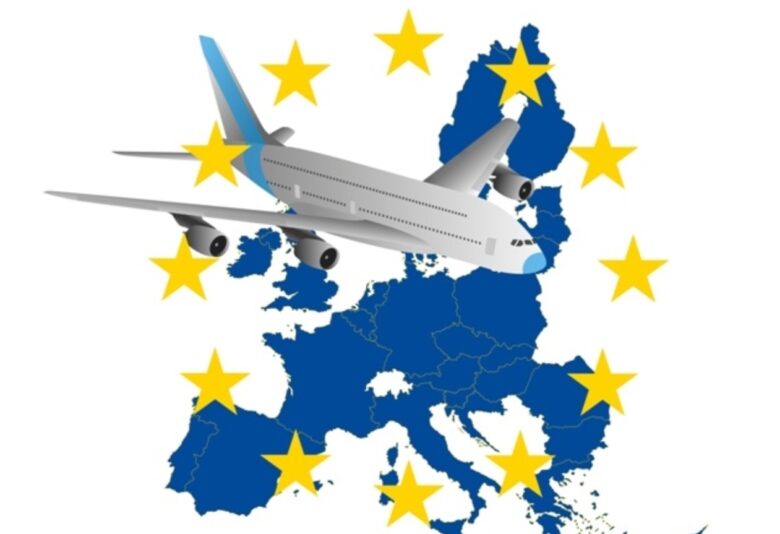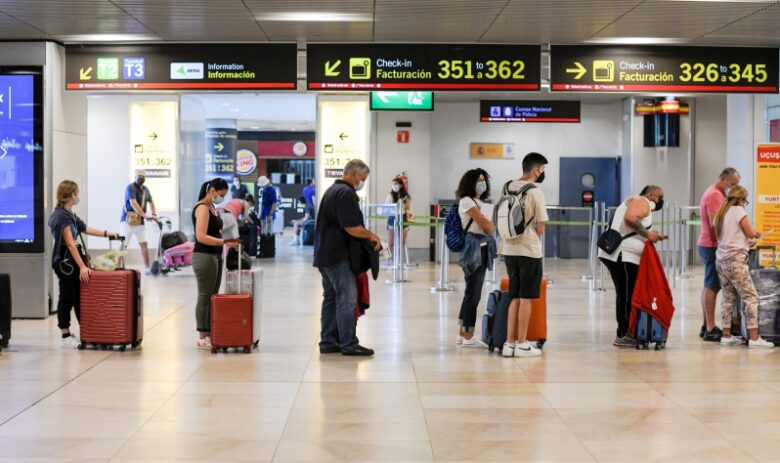Navigating the complexities of air travel can be daunting, especially when things don’t go as planned. This comprehensive guide is dedicated to informing travelers about the Air Passenger Rights Regulation, a crucial piece of legislation that outlines your rights and protections while flying. In 2024, being aware of these rights is more important than ever, whether you’re a frequent flyer or an occasional traveler.
Contents
- The Essence of Air Passenger Rights Regulation
- Understanding Flight Delays
- Flight Delays at Wizz Air
- Dealing with Flight Cancellations
- Overbooking Situations
- Luggage Woes
- Rights in Extraordinary Circumstances
- Seeking Redress and Making Claims
- Proactive Measures for Travelers
- Special Assistance and Passengers with Disabilities
- Navigating Airline Bankruptcies
- The Role of Travel Insurance
- Staying Updated with Changes and Amendments
- Global Variations in Air Passenger Rights
The Essence of Air Passenger Rights Regulation
The Air Passenger Rights Regulation serves as a safeguard for travelers against the unpredictability and inconvenience that often accompany air travel. At its core, the regulation is designed to ensure fair treatment and compensation for passengers in the event of flight delays, cancellations, overbooking, or luggage issues. These rules apply to flights within, departing from, or arriving in the respective region, with specific policies varying based on the country and airline.

Source: epthinktank.eu
Understanding Flight Delays
Flight delays are perhaps the most common issue faced by air travelers. The regulation stipulates that in the event of a delay, airlines are responsible for providing passengers with timely information, refreshments, and accommodation when necessary. The duration of the delay determines the extent of these amenities. For delays exceeding a certain threshold, usually three hours, passengers may be entitled to financial compensation. This compensation is calculated based on the flight distance and the length of the delay.
Flight Delays at Wizz Air
For Wizz Air flight delays, you can either contact the airline directly or use legal services like AirAdvisor or SkyRefund for compensation claims. Compensation varies with flight distance: €250 for up to 1500 km, €400 for 1500-3500 km, and €600 for over 3500 km. In case of cancellations, you’re entitled to rebooking, a refund, or rerouting, with potential compensation if informed less than 14 days before departure. Overbooking compensation is also available under similar conditions. The process can take a few months, and airlines aren’t liable for delays due to extraordinary circumstances. Check more on Wizz Air flight delay compensation and learn how you can protect your rights if your flight is ever delayed.

Source: flightright.com
Dealing with Flight Cancellations
Flight cancellations can disrupt travel plans significantly. The regulation mandates that airlines must offer either a full refund or an alternative flight to the passenger. Additionally, similar to flight delays, if the cancellation occurs within a certain time frame before the scheduled departure, passengers may be eligible for compensation. This is to ensure that travelers are not left stranded or out of pocket due to last-minute changes by the airline.
Overbooking Situations
Overbooking is a strategy airlines use to ensure that flights are full, accounting for no-shows. However, this can sometimes result in more passengers than available seats. In such cases, the regulation requires airlines to first seek volunteers to give up their seats in exchange for benefits. If there are not enough volunteers, and you are denied boarding against your will, you are entitled to compensation, re-routing, or a refund, along with care and assistance similar to flight delays and cancellations.
Luggage Woes
Lost, delayed, or damaged luggage is a significant inconvenience that can impact your travel experience. The regulation covers these situations, entitling passengers to claim compensation for the inconvenience caused. It’s important to report the issue immediately at the airport and follow the airline’s claim process. Keep receipts of essential purchases made due to the delay of luggage, as they may be required for compensation claims.

Source: theregreview.org
Rights in Extraordinary Circumstances
It’s crucial to note that in extraordinary circumstances, such as extreme weather conditions or political instability, airlines may not be liable for compensation. However, they are still obligated to provide care and assistance during long delays. Understanding what constitutes an extraordinary circumstance is key to knowing when to expect compensation and when not to.
Seeking Redress and Making Claims
If your rights under the Air Passenger Rights Regulation have been violated, it’s important to file a claim with the airline. Documentation is key; keep boarding passes, receipts, and any correspondence with the airline. If the airline does not respond satisfactorily, you can escalate your complaint to the relevant national enforcement body or take legal action if necessary.
Proactive Measures for Travelers
Knowledge is power, and in the context of air travel, this couldn’t be more accurate. As a traveler, being proactive can significantly enhance your experience and ensure your rights are protected. It’s advisable to familiarize yourself with the specific policies of the airline you’re flying with, as these can sometimes offer more than the basic requirements of the regulation. Always keep a copy of the airline’s terms and conditions handy; it can be a crucial reference in case of disputes.

Source: concentra.com
Special Assistance and Passengers with Disabilities
The regulation pays particular attention to passengers requiring special assistance, including those with disabilities. Airlines are obliged to provide necessary services without additional charge. This includes assistance at the airport, during boarding, and throughout the flight. Informing the airline about your needs at least 48 hours before travel ensures that adequate preparations are made. The rights of passengers with disabilities or reduced mobility are not just a courtesy but a legal requirement.
In an era where airline bankruptcies are not unheard of, understanding your rights in such scenarios is vital. If an airline ceases operations, the regulation provides a framework for claiming refunds or re-routing. However, the process can be complex, and there’s no guarantee of compensation, especially for monetary damages. It’s often recommended to book flights using credit cards or opt for travel insurance that covers airline bankruptcy for added protection.
The Role of Travel Insurance
While the Air Passenger Rights Regulation offers substantial protections, there are limitations. This is where travel insurance becomes invaluable. Comprehensive travel insurance can cover scenarios beyond the regulation, such as medical emergencies, trip cancellations for personal reasons, and more. It acts as a safety net, filling the gaps where the regulation does not reach.

Source: costar.com
Staying Updated with Changes and Amendments
Regulations and policies are not static; they evolve. Staying updated with any changes or amendments to the Air Passenger Rights Regulation is crucial for travelers. Airlines and regulatory bodies often update their websites with the latest information. It’s beneficial to periodically check these resources, especially before planning a trip.
Global Variations in Air Passenger Rights
It’s worth noting that air passenger rights vary globally. While this guide focuses on a particular region’s regulation, many countries have their own versions with different rules and protections. For instance, the European Union, the United States, and Canada each have distinct policies governing air passenger rights. When traveling internationally, understanding the regulations applicable to your flight route can be immensely beneficial.
Summary
In sum, the Air Passenger Rights Regulation is a cornerstone in ensuring fair treatment of air travelers. Whether it’s dealing with flight delays, cancellations, overbooking, or luggage issues, knowing your rights is essential. The travel landscape is constantly shifting, and being an informed traveler is more important than ever.
